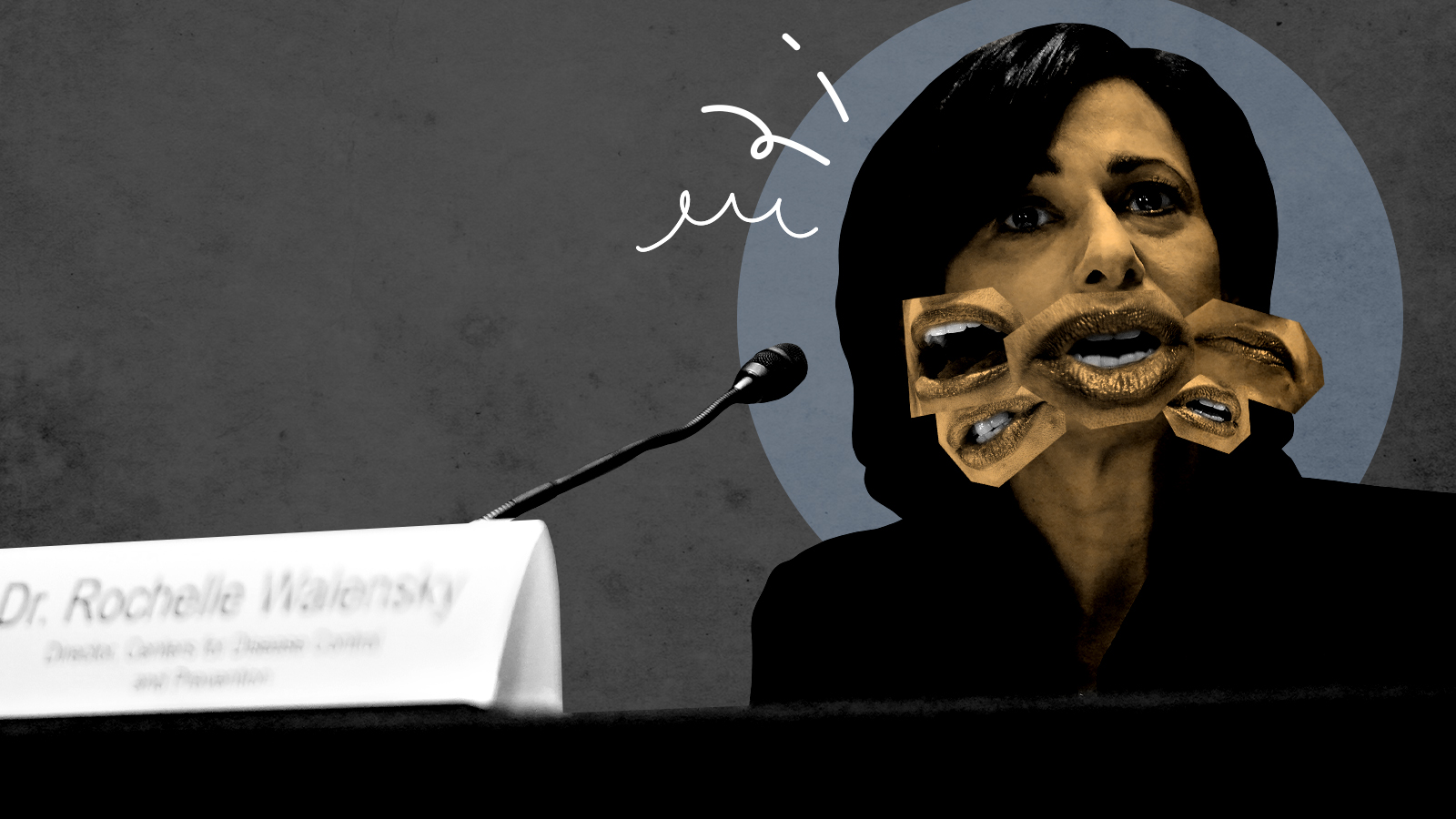The CDC's abysmal messaging


A free daily email with the biggest news stories of the day – and the best features from TheWeek.com
You are now subscribed
Your newsletter sign-up was successful
Even at this stage of the pandemic, it can't be easy to be the CDC. The situation remains fluid — there are variants and vaccine hesitancy to deal with, meaning the road to something that looks like normalcy has been anything but straight. Americans want this whole thing to be over, and the agency makes a convenient target for the folks who are frustrated that we can't just move on, already.
Sometimes, though, the CDC makes life harder on itself — and undermines public confidence as a result.
That's what has happened this week. On Tuesday, the agency revised its guidance on mask-wearing, encouraging everybody — vaxxed and unvaxxed — to wear facial coverings when indoors. That made sense to me: With COVID-19 hospitalizations skyrocketing in much of the country, masking up could be a quick-acting measure to slow the spread while vaccination efforts continue. Not everybody was convinced, though. Some experts and commentators noted the CDC had issued its recommendations without providing the public with the evidence it used to make its decision.
The Week
Escape your echo chamber. Get the facts behind the news, plus analysis from multiple perspectives.

Sign up for The Week's Free Newsletters
From our morning news briefing to a weekly Good News Newsletter, get the best of The Week delivered directly to your inbox.
From our morning news briefing to a weekly Good News Newsletter, get the best of The Week delivered directly to your inbox.
"They're making a claim that people with Delta who are vaccinated and unvaccinated have similar levels of viral load, but nobody knows what that means," one researcher told The Washington Post. "It's meaningless unless we see the data."
That's an entirely reasonable expectation. Instead of providing that data right away, an anonymous official told the newspaper it would be "published imminently." On Thursday night — after two days of angry debates about masking — somebody leaked an agency presentation showing that vaccinated people who contract the Delta variant have viral loads similar to unvaxxed persons. This is good to know. It would have been better to know on Tuesday.
Communications are a critical part of any public health effort. It's important to tell people not just what they should do to be safe, but why, and to show your work. By releasing its guidance before the data used to justify it, the CDC didn't so much put the cart before the horse as uncouple them entirely. Even with the data in place, we'd still see raucous debates over whether the agency's guidance is sound, and pushback from folks who won't do what the government says no matter what the facts might be. Without the data, though, it's easier for those opponents to portray the CDC's guidance as arbitrary and capricious. And that makes the fight to control the pandemic that much more difficult.
A free daily email with the biggest news stories of the day – and the best features from TheWeek.com
Joel Mathis is a writer with 30 years of newspaper and online journalism experience. His work also regularly appears in National Geographic and The Kansas City Star. His awards include best online commentary at the Online News Association and (twice) at the City and Regional Magazine Association.
-
 Why is the Trump administration talking about ‘Western civilization’?
Why is the Trump administration talking about ‘Western civilization’?Talking Points Rubio says Europe, US bonded by religion and ancestry
-
 Quentin Deranque: a student’s death energizes the French far right
Quentin Deranque: a student’s death energizes the French far rightIN THE SPOTLIGHT Reactions to the violent killing of an ultraconservative activist offer a glimpse at the culture wars roiling France ahead of next year’s elections
-
 Secured vs. unsecured loans: how do they differ and which is better?
Secured vs. unsecured loans: how do they differ and which is better?the explainer They are distinguished by the level of risk and the inclusion of collateral
-
 Why is the Trump administration talking about ‘Western civilization’?
Why is the Trump administration talking about ‘Western civilization’?Talking Points Rubio says Europe, US bonded by religion and ancestry
-
 Big-time money squabbles: the conflict over California’s proposed billionaire tax
Big-time money squabbles: the conflict over California’s proposed billionaire taxTalking Points Californians worth more than $1.1 billion would pay a one-time 5% tax
-
 Did Alex Pretti’s killing open a GOP rift on guns?
Did Alex Pretti’s killing open a GOP rift on guns?Talking Points Second Amendment groups push back on the White House narrative
-
 Washington grapples with ICE’s growing footprint — and future
Washington grapples with ICE’s growing footprint — and futureTALKING POINTS The deadly provocations of federal officers in Minnesota have put ICE back in the national spotlight
-
 Trump’s Greenland ambitions push NATO to the edge
Trump’s Greenland ambitions push NATO to the edgeTalking Points The military alliance is facing its worst-ever crisis
-
 Why is Trump threatening defense firms?
Why is Trump threatening defense firms?Talking Points CEO pay and stock buybacks will be restricted
-
 The billionaires’ wealth tax: a catastrophe for California?
The billionaires’ wealth tax: a catastrophe for California?Talking Point Peter Thiel and Larry Page preparing to change state residency
-
 Trump considers giving Ukraine a security guarantee
Trump considers giving Ukraine a security guaranteeTalking Points Zelenskyy says it is a requirement for peace. Will Putin go along?
